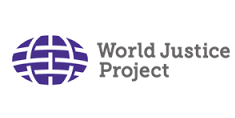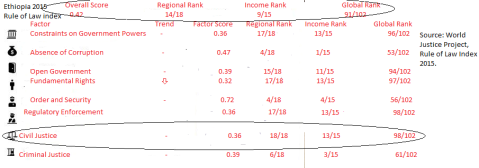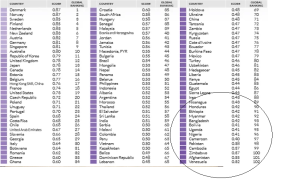Why the rule of law matters for human flourishing April 17, 2017
Posted by OromianEconomist in Uncategorized.Tags: Ecomonomics, Freedom and reason, Legal system, Rule of Law
add a comment
“Rule of law is essential if you want to have a functioning economy,” says Samuel Gregg in the PovertyCure series. “You cannot have a functioning economy without secure property rights. You cannot have a functioning economy unless contracts are enforced. You cannot have a functioning economy if government officials can act in an arbitrary fashion.”
Indeed, as the following excerpt explains, a society can have the right people with the right skills and the right tangible goods and materials, but if individuals lack things like property rights, fair rules, access to courts, and access to markets, economic activity will fizzle as social frustration climbs.
“Try and imagine a football match without rules,” says economist Hernando De Soto. “…The rules are crucial to get that game going. But everyone knows how to drive a ball. Everybody knows how to buy and sell, so there is plenty of entrepreneurship in the world. The problem is the rules. In two-thirds of the world, there isn’t yet the rule of law.”
World Justice Project (Rule of Law Index 2015): Ethiopia ranked 98/102 in civil justice, 97/102 in fundamental Rights December 29, 2015
Posted by OromianEconomist in Uncategorized.Tags: 97/102 in fundamental Rights, Ethiopia, Rule of Law, World Justice Project 2015, World Justice Project: Ethiopia ranked 98/102 in civil justice
add a comment


“Where-ever law ends, tyranny begins.”
– JOHN LOCKE
The Rule of Law Index 2015, released by the U.S.-based World Justice project analyses 102 countries worldwide using a survey. The data, collected in 2013, measures how the rule of law is experienced in practical, everyday situations using 47 indicators across eight categories — constraints on government powers, absence of corruption, open government, fundamental rights, order and security, regulatory enforcement, civil justice, and criminal justice.
According to the 2015 Index, Ethiopia’s overall rule of law performance places it in the 91st out of 102 countries worldwide. It’s ranks in civil justice and fundamental rights are 97th and 98th respectively. The top overall performer in the WJP Rule of Law Index 2015 was Denmark.
Ethiopia in 2015 rule of law index: Ranked worst on global and regional level

Ethiopia ranks 91/102, one of the worst performers

Read the details at:-
http://data.worldjusticeproject.org/#groups/ETH
Click to access roli_2015_0.pdf
http://worldjusticeproject.org/rule-of-law-index
The World Justice Project (WJP) Rule of Law Index® provides original, impartial data on how the rule of law is experienced by the general public in 102 countries around the globe.
The WJP Rule of Law Index 2015® relies on over 100,000 household and 2,400 expert surveys to measure how the rule of law is experienced in practical, everyday situations by ordinary people around the world. Performance is assessed using 44 indicators across eight categories, each of which is scored and ranked globally and against regional and income peers: Constraints on Government Powers, Absence of Corruption, Open Government, Fundamental Rights, Order and Security, Regulatory Enforcement, Civil Justice, and Criminal Justice.
The WJP Rule of Law Index is the most comprehensive index of its kind and the only to rely solely on primary data. The Index’s scores are built from the assessments of local residents (1,000 respondents per country) and local legal experts, ensuring that the findings reflect the conditions experienced by the population, including marginalized sectors of society.
What is the Rule of Law?
Derived from internationally accepted standards, the World Justice Project’s definition of the rule of law is a system in which the following four universal principles are upheld:
- The government and its officials and agents as well as individuals and private entities are accountable under the law.
- The laws are clear, publicized, stable, and just; are applied evenly; and protect fundamental rights, including the security of persons and property.
- The process by which the laws are enacted, administered, and enforced is accessible, fair, and efficient.
- Justice is delivered timely by competent, ethical, and independent representatives and neutrals who are of sufficient number, have adequate resources, and reflect the makeup of the communities they serve.
These four universal principles are further developed in the nine factors of the WJP Rule of Law Index, which measures how the rule of law is experienced by ordinary people in 99 countries around the globe.
Read more at:


You must be logged in to post a comment.